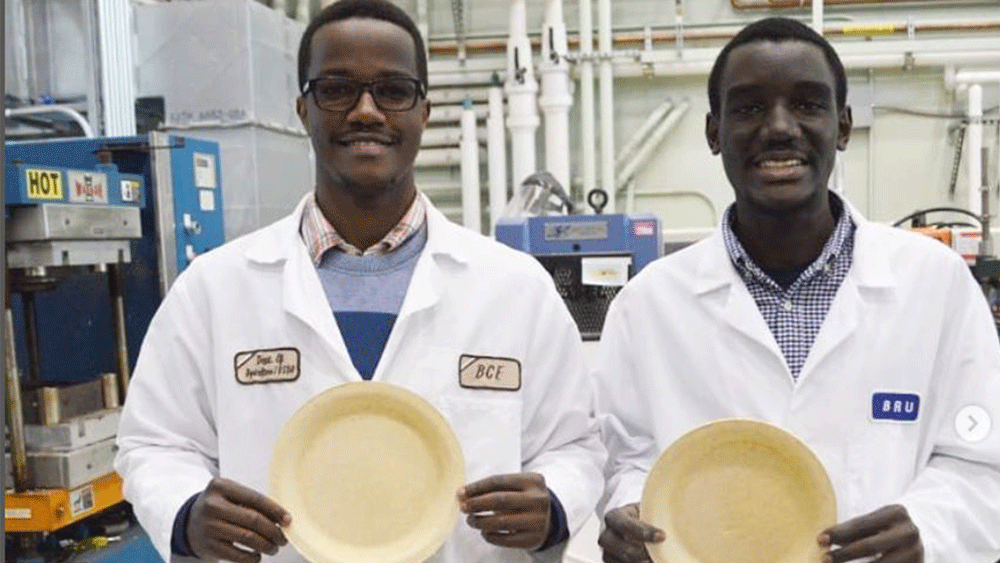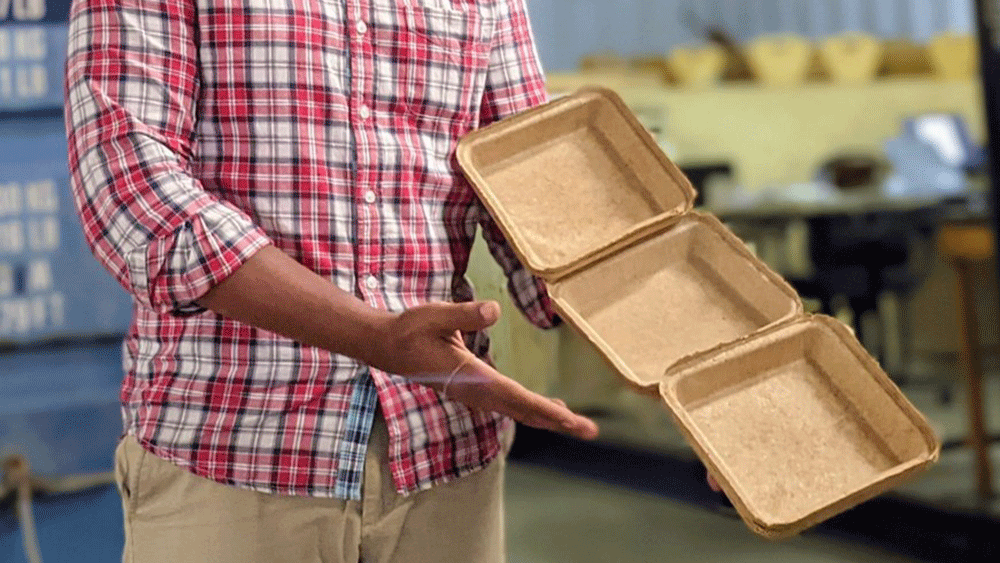
In the 2020 Invent for the Planet (IFTP) global competition, team Hya Bioplastics from Makerere University, Uganda, placed third with their idea to overcome the challenge of single-use plastics through biodegradable alternatives made from water hyacinths.
IFTP is a competition in which universities from all over the world participate. The first round is a 48-hour competition where teams are judged at their local university. The first-place winners from each institute are then selected to refine their pitch and compete in the second round. Finally, the top five teams then compete in a final round.
"My team initially had an idea in the area of plastics, and this competition helped us refine what we were working on and build it into something that is more useful and applicable to solving current problems," said team member Dennis Ssekimpi.

The team consisted of Ssekimpi, Pike Kwizera and Musinguzi Mark Musiimenta, who have started the company Hya Bioplastics based on their initial idea. They are working with the Halcyon Incubator in Washington, D.C., which supports businesses that focus on sustainable solutions to global problems.
Their innovation would eliminate single-use, oil-derived plastics through a biodegradable alternative made from water hyacinths, an invasive aquatic weed in the waterways of Uganda. By clearing the lakes of these invasive aquatic weeds to produce the packaging, this design would address multiple local and global problems.
"As an engineering student, you get the opportunity to work through the entire design process from ideation to prototyping, and this is good exposure since in the engineering profession this is part of the day-to-day task," said Ssekimpi.
Currently, Hya Bioplastics is setting up a pilot plant in Uganda to increase production of the first product, a compostable fruit and vegetable tray, to replace Styrofoam trays commonly used in grocery stores.
"This was my first experience in a global and remote program. I was able to learn a lot and meet people. I learned collaboration in a remote environment, and this has been an important skill in these times," Ssekimpi said. “It was a once-in-a-lifetime opportunity to work in such a fast-paced global environment.”